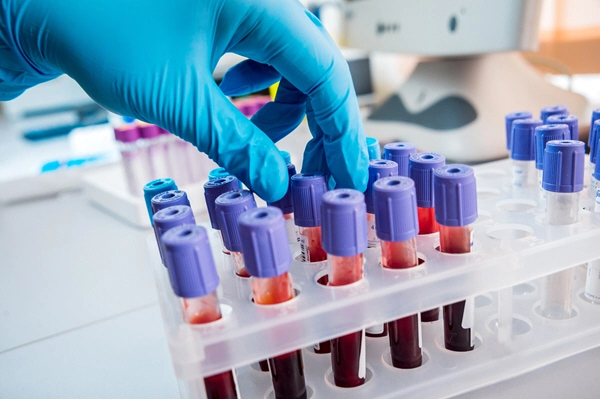Introduction to Prostate Cancer
Prostate cancer remains one of the most prevalent cancers among American men, with statistics indicating that one in nine men will be diagnosed with the disease during their lifetime. Early detection and effective treatment are crucial in managing this condition, and one of the advanced surgical options available is laparoscopic surgery. This article aims to provide an insightful overview of laparoscopic surgery for prostate cancer, tailored specifically for American men concerned about their prostate health.
Understanding Laparoscopic Surgery
Laparoscopic surgery, also known as minimally invasive surgery, involves making several small incisions in the abdomen through which specialized surgical instruments and a camera are inserted. The surgeon operates while viewing the detailed images provided by the camera on a monitor. This technique is a significant advancement over traditional open surgery, which requires a larger incision and often results in a longer recovery period.
Benefits of Laparoscopic Surgery for Prostate Cancer
Laparoscopic surgery offers several advantages for men undergoing prostate cancer treatment. Firstly, it results in less pain and discomfort post-surgery due to the smaller incisions. Secondly, the recovery time is significantly reduced, allowing patients to return to their normal activities much sooner. Additionally, there is a lower risk of infection and blood loss, which contributes to a safer surgical experience. The precision of laparoscopic instruments also enhances the surgeon's ability to remove the cancerous tissue while minimizing damage to surrounding healthy structures.
The Procedure: What to Expect
During the procedure, the surgeon will remove the prostate gland and, if necessary, nearby lymph nodes. The surgery typically lasts between two to four hours, depending on the complexity of the case. Patients are usually placed under general anesthesia to ensure they remain comfortable and pain-free throughout the operation. After the surgery, patients may need to stay in the hospital for one to two days for monitoring and initial recovery.
Post-Surgical Care and Recovery
Post-operative care is crucial for a successful recovery. Patients are advised to follow their surgeon's instructions carefully, which may include pain management, avoiding heavy lifting, and attending follow-up appointments. Most men can resume light activities within a few weeks, but full recovery may take up to six weeks. It is essential to monitor for any signs of complications, such as infection or urinary issues, and to seek medical attention if these arise.
Long-Term Outcomes and Quality of Life
The long-term outcomes of laparoscopic surgery for prostate cancer are generally positive. Studies have shown that this method is as effective as traditional open surgery in removing the cancer and has a similar success rate in terms of cancer control. Additionally, the minimally invasive nature of the procedure often leads to better preservation of urinary and sexual function, which are significant quality-of-life factors for many men.
Choosing the Right Surgeon and Facility
Selecting an experienced surgeon and a reputable medical facility is vital for achieving the best possible outcomes. Patients should seek out surgeons who specialize in laparoscopic prostatectomy and have a track record of successful surgeries. It is also beneficial to choose a hospital that is equipped with the latest technology and has a dedicated team for post-operative care.
Conclusion: Empowering Men Through Knowledge
Understanding the options available for treating prostate cancer, such as laparoscopic surgery, empowers American men to make informed decisions about their health. By staying informed and proactive, men can navigate their prostate cancer journey with confidence, knowing that advanced surgical techniques like laparoscopy offer effective and less invasive treatment options. As always, consulting with healthcare professionals is essential to tailor the treatment plan to individual needs and circumstances.

- Prostate Health in Aging Men: Understanding Changes and Management Strategies [Last Updated On: March 8th, 2025] [Originally Added On: March 8th, 2025]
- Prostate Cancer Survivorship: Managing Health and Well-being Post-Treatment [Last Updated On: March 16th, 2025] [Originally Added On: March 16th, 2025]
- Prostate Cancer's Psychological Impact and Holistic Care Strategies for American Men [Last Updated On: March 17th, 2025] [Originally Added On: March 17th, 2025]
- Optimal Exercise Practices for Enhancing Prostate Health in American Men [Last Updated On: March 17th, 2025] [Originally Added On: March 17th, 2025]
- Prostate Cancer Screening: Navigating Controversies and Making Informed Decisions [Last Updated On: March 18th, 2025] [Originally Added On: March 18th, 2025]
- Prostate Health: Understanding Family History and Genetic Risks for American Men [Last Updated On: March 18th, 2025] [Originally Added On: March 18th, 2025]
- Understanding BPH: Prevalence, Symptoms, Diagnosis, and Management in American Men [Last Updated On: March 18th, 2025] [Originally Added On: March 18th, 2025]
- Prostate Health: Understanding Symptoms, Screening, and Lifestyle Impact on American Men [Last Updated On: March 18th, 2025] [Originally Added On: March 18th, 2025]
- Prostate Cancer Treatments: Side Effects and Management Strategies for American Men [Last Updated On: March 20th, 2025] [Originally Added On: March 20th, 2025]
- Prostate Health: Understanding Risks and Enhancing Wellness in American Men [Last Updated On: March 20th, 2025] [Originally Added On: March 20th, 2025]
- Dietary Strategies for Enhancing Prostate Health in American Men [Last Updated On: March 20th, 2025] [Originally Added On: March 20th, 2025]
- Prostate Health and Cardiovascular Disease: Shared Risks and Integrated Care Strategies [Last Updated On: March 20th, 2025] [Originally Added On: March 20th, 2025]
- Stress Impact on Prostate Health: Management Strategies for American Men [Last Updated On: March 21st, 2025] [Originally Added On: March 21st, 2025]
- Prostate Cancer's Impact on Fertility: Treatment Effects and Preservation Options [Last Updated On: March 22nd, 2025] [Originally Added On: March 22nd, 2025]
- Prostate Health: Benefits and Types of Exercise for American Men [Last Updated On: March 22nd, 2025] [Originally Added On: March 22nd, 2025]
- Prostate Cancer and Radiation Therapy: Benefits, Advances, and Considerations for American Males [Last Updated On: March 22nd, 2025] [Originally Added On: March 22nd, 2025]
- Active Surveillance: A Key Strategy for Managing Low-Risk Prostate Cancer in American Men [Last Updated On: March 22nd, 2025] [Originally Added On: March 22nd, 2025]
- Prostate Health: Foods to Avoid for Prevention of Cancer and BPH [Last Updated On: March 23rd, 2025] [Originally Added On: March 23rd, 2025]
- Sleep Quality's Impact on Prostate Health: Hormones and Practical Sleep Tips [Last Updated On: March 24th, 2025] [Originally Added On: March 24th, 2025]
- Targeted Therapy for Prostate Cancer: Insights for American Men's Health [Last Updated On: March 24th, 2025] [Originally Added On: March 24th, 2025]
- Hormone Therapy in Prostate Cancer: Benefits, Challenges, and Future for American Men [Last Updated On: March 24th, 2025] [Originally Added On: March 24th, 2025]
- Chemotherapy's Role and Impact on Prostate Cancer in American Men [Last Updated On: March 24th, 2025] [Originally Added On: March 24th, 2025]
- Prostate Cancer and Cryotherapy: A Minimally Invasive Treatment Option for American Men [Last Updated On: March 25th, 2025] [Originally Added On: March 25th, 2025]
- Antioxidants and Prostate Health: Diet, Supplements, and Lifestyle for American Males [Last Updated On: March 25th, 2025] [Originally Added On: March 25th, 2025]
- Selenium's Role in Enhancing Prostate Health: Benefits and Dietary Sources [Last Updated On: March 25th, 2025] [Originally Added On: March 25th, 2025]
- Green Tea Benefits for Prostate Health in American Males [Last Updated On: March 25th, 2025] [Originally Added On: March 25th, 2025]
- Prostate and Bone Health: Critical Links and Management Strategies for American Males [Last Updated On: March 25th, 2025] [Originally Added On: March 25th, 2025]
- Vitamin D's Crucial Role in Prostate Health for American Males [Last Updated On: March 25th, 2025] [Originally Added On: March 25th, 2025]
- HIFU: A Promising Non-Surgical Option for Prostate Cancer Treatment [Last Updated On: March 25th, 2025] [Originally Added On: March 25th, 2025]
- Alcohol Consumption's Impact on Prostate Health: Risks and Benefits for American Men [Last Updated On: March 25th, 2025] [Originally Added On: March 25th, 2025]
- Hydration's Crucial Role in Maintaining Prostate Health for American Males [Last Updated On: March 25th, 2025] [Originally Added On: March 25th, 2025]
- Brachytherapy: Targeted Prostate Cancer Treatment Options and Considerations [Last Updated On: March 26th, 2025] [Originally Added On: March 26th, 2025]
- Heavy Metals' Impact on Prostate Health: Risks, Mechanisms, and Prevention Strategies [Last Updated On: March 26th, 2025] [Originally Added On: March 26th, 2025]
- Zinc's Crucial Role in Prostate Health for American Males [Last Updated On: March 26th, 2025] [Originally Added On: March 26th, 2025]
- Photodynamic Therapy: A Promising, Less Invasive Treatment for Prostate Cancer in American Men [Last Updated On: March 26th, 2025] [Originally Added On: March 26th, 2025]
- Omega-3 Fatty Acids: Enhancing Prostate Health in American Males [Last Updated On: March 26th, 2025] [Originally Added On: March 26th, 2025]
- Prostate Cancer: Stages, Grades, and Treatment Options for American Men [Last Updated On: March 26th, 2025] [Originally Added On: March 26th, 2025]
- Immunotherapy: A New Hope for Prostate Cancer Treatment in American Men [Last Updated On: March 26th, 2025] [Originally Added On: March 26th, 2025]
- Environmental Factors and Prostate Health: Risks and Preventive Measures for American Males [Last Updated On: March 27th, 2025] [Originally Added On: March 27th, 2025]
- Air Pollution's Impact on Prostate Health: Risks and Protective Measures for American Men [Last Updated On: March 27th, 2025] [Originally Added On: March 27th, 2025]
- Prostate Cancer Support Groups: Emotional Aid and Empowerment for American Men [Last Updated On: March 27th, 2025] [Originally Added On: March 27th, 2025]
- Prostate Cancer Management: Understanding Watchful Waiting and Its Implications [Last Updated On: March 27th, 2025] [Originally Added On: March 27th, 2025]
- Proton Therapy: A Targeted Approach to Treating Prostate Cancer in American Men [Last Updated On: March 27th, 2025] [Originally Added On: March 27th, 2025]
- Pesticides and Prostate Health: Risks, Mechanisms, and Preventive Measures for American Males [Last Updated On: March 27th, 2025] [Originally Added On: March 27th, 2025]
- Lycopene's Role in Enhancing Prostate Health: Prevention and Management Strategies [Last Updated On: March 27th, 2025] [Originally Added On: March 27th, 2025]
- Chemoprevention Strategies for Prostate Cancer Prevention in American Men [Last Updated On: March 27th, 2025] [Originally Added On: March 27th, 2025]
- Plastics and Prostate Health: Risks, Research, and Reduction Strategies for American Males [Last Updated On: March 28th, 2025] [Originally Added On: March 28th, 2025]
- Chronic Inflammation's Impact on Prostate Health in American Males: Prevention and Management [Last Updated On: March 28th, 2025] [Originally Added On: March 28th, 2025]
- Palliative Care's Vital Role in Enhancing Prostate Cancer Patients' Quality of Life [Last Updated On: March 28th, 2025] [Originally Added On: March 28th, 2025]
- CyberKnife Radiosurgery: Precision Treatment for Prostate Cancer in American Men [Last Updated On: March 29th, 2025] [Originally Added On: March 29th, 2025]
- Vitamin E's Role in Prostate Health: Benefits and Dietary Sources [Last Updated On: March 29th, 2025] [Originally Added On: March 29th, 2025]
- Prostate Cancer Surgery: Benefits, Risks, and Choosing the Right Approach [Last Updated On: March 30th, 2025] [Originally Added On: March 30th, 2025]
- EMFs and Prostate Health: Risks, Mechanisms, and Mitigation Strategies for American Males [Last Updated On: March 31st, 2025] [Originally Added On: March 31st, 2025]
- Robotic Surgery for Prostate Cancer: Benefits, Procedure, and Recovery Insights [Last Updated On: March 31st, 2025] [Originally Added On: March 31st, 2025]
- Prostate Cancer and Focal Therapy: A Targeted Approach for American Men [Last Updated On: April 2nd, 2025] [Originally Added On: April 2nd, 2025]
- Cruciferous Vegetables: Enhancing Prostate Health in American Males [Last Updated On: April 2nd, 2025] [Originally Added On: April 2nd, 2025]
- Endocrine Disruptors and Prostate Health: Risks, Exposure, and Mitigation Strategies [Last Updated On: April 6th, 2025] [Originally Added On: April 6th, 2025]
- Industrial Chemicals and Prostate Health: Risks and Mitigation for American Males [Last Updated On: April 8th, 2025] [Originally Added On: April 8th, 2025]
- Prostate Cancer Management: The Role and Future of Neoadjuvant Therapy [Last Updated On: April 9th, 2025] [Originally Added On: April 9th, 2025]
- Palliative Surgery for Prostate Cancer: Enhancing Quality of Life for American Men [Last Updated On: April 9th, 2025] [Originally Added On: April 9th, 2025]
- Soy's Role in Enhancing Prostate Health: Benefits and Dietary Integration [Last Updated On: April 9th, 2025] [Originally Added On: April 9th, 2025]
- Salvage Therapy: A Second Chance for American Men with Recurrent Prostate Cancer [Last Updated On: April 10th, 2025] [Originally Added On: April 10th, 2025]
- Prostate Health: Medications, Risks, and Lifestyle Management for American Males [Last Updated On: April 12th, 2025] [Originally Added On: April 12th, 2025]
- Flaxseed: A Natural Approach to Enhancing Prostate Health in American Males [Last Updated On: April 13th, 2025] [Originally Added On: April 13th, 2025]
- Adjuvant Therapy in Prostate Cancer: Hormonal, Radiation, and Chemotherapy Roles [Last Updated On: April 13th, 2025] [Originally Added On: April 13th, 2025]



List of USA state clinics - click a flag below for blood testing clinics.
Word Count: 595



















































